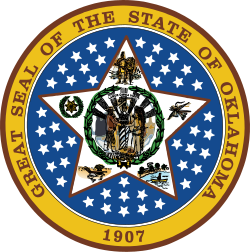| | |||||||||||||||||
November 6, 1962 | |||||||||||||||||
| |||||||||||||||||
 County results Bellmon: 40–50% 50–60% 60–70% 70–80% 80–90% Atkinson: 40–50% 50–60% 60–70% 70–80% | |||||||||||||||||
| |||||||||||||||||
| Elections in Oklahoma |
|---|
 |
The 1962 Oklahoma gubernatorial election was held on November 6, 1962, and was a race for Governor of Oklahoma. Republican Henry Bellmon defeated Democrat W. P. Bill Atkinson and Independent L. Richard Zavitz to become the first Republican governor of Oklahoma. [1] Former governor Raymond D. Gary, lieutenant governor George Nigh, state senator Fred R. Harris, and State Treasurer William A. Burkhart unsuccessfully sought the Democratic nomination.

